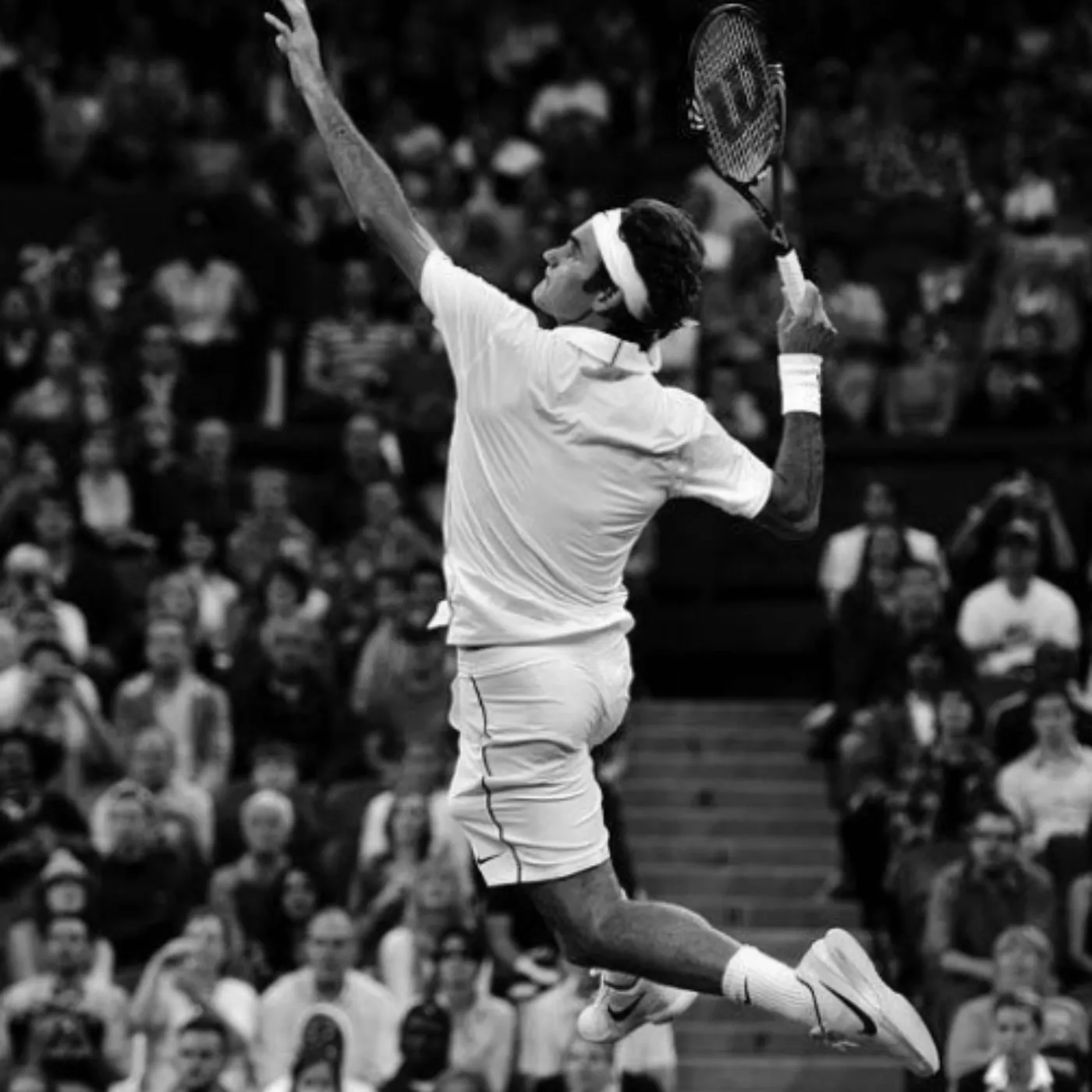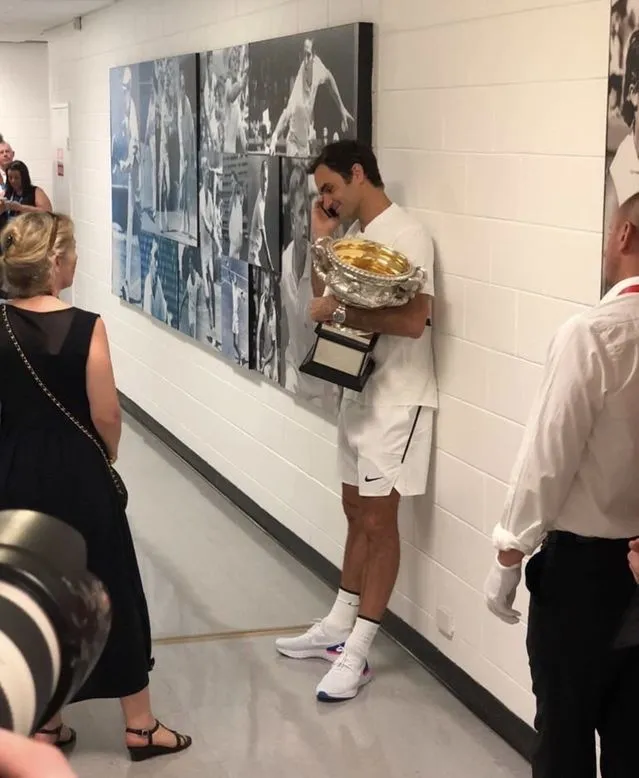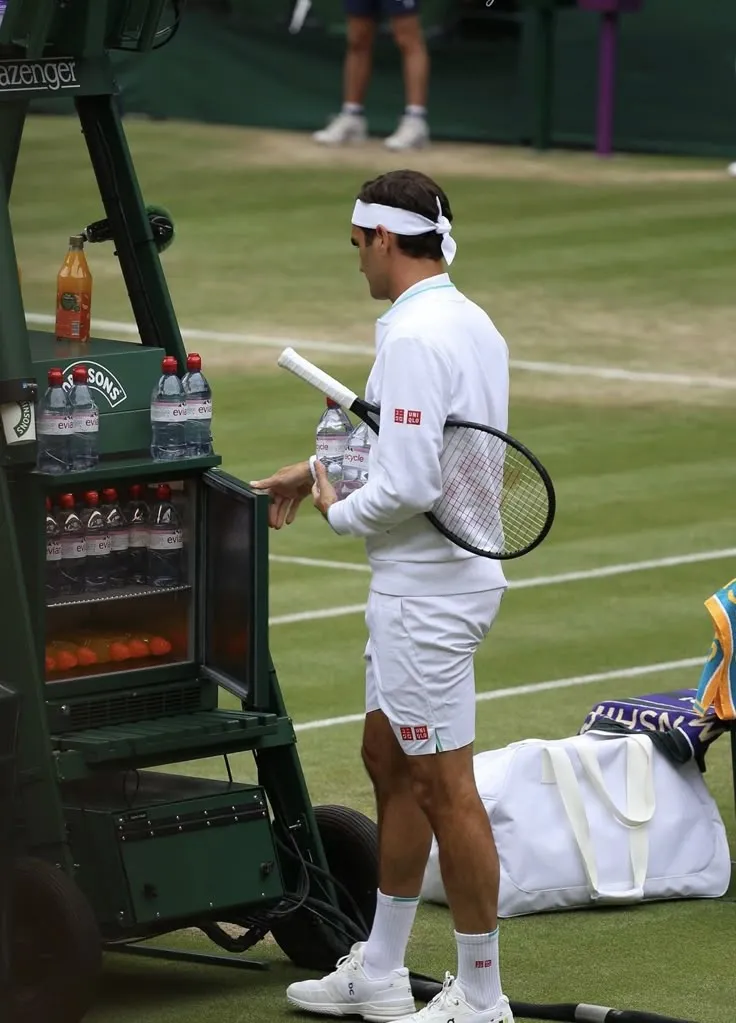

Cracks In The Big 4? The Truth About The Tense Relationship Between Federer And Djokovic!
Roger Federer, born on August 8, 1981, in Basel, Switzerland, showed an early passion for sports. As a child, he played both soccer and tennis, but by age 12, he made a life-changing decision—to fully commit to tennis. His incredible natural talent quickly set him apart from his peers. Federer’s first major breakthrough came in 1998, when he won the Wimbledon junior title, a moment that foreshadowed his future greatness.
Even as a teenager, Federer possessed a rare blend of power, precision, and effortless elegance, making him one of the most promising young talents in tennis history.
Dominating the Tennis World—Federer’s Golden Era
Federer’s true arrival on the global stage happened in 2003, when he clinched his first Grand Slam title at Wimbledon. From that moment, he became an unstoppable force, establishing himself as the most dominant player of the 2000s.
Between 2004 and 2007, Federer was nearly untouchable, winning 11 Grand Slam titles and holding the ATP world No. 1 ranking for 237 consecutive weeks—a record still untouched. His flawless technique, elegant footwork, and incredible shot-making ability mesmerized fans worldwide.
Key milestones in Federer’s prime:
-
2004 – Became world No. 1 after winning three Grand Slams (Australian Open, Wimbledon, US Open).
-
2006—One of the greatest seasons ever, winning 12 titles, including three Grand Slams.
-
2007—Completed a historic five-peat at Wimbledon, further cementing his dominance.
-
2009 – Achieved the Career Grand Slam by finally winning Roland Garros.
During this period, Federer was nearly invincible, and his graceful yet lethal playing style made him a fan favorite.
Big 4 Rivalries—The Battles That Defined an Era

Despite his dominance, Federer faced stiff competition from Rafael Nadal, Novak Djokovic, and Andy Murray, forming what is now known as the Big 4. These intense rivalries elevated men’s tennis to unprecedented heights.
-
Federer vs. Nadal—The Ultimate Rivalry
Nadal emerged as Federer’s biggest challenger, particularly on clay courts. Their battles, especially at Roland Garros and Wimbledon, became instant classics. The 2008 Wimbledon final, where Nadal defeated Federer in an epic five-set thriller, is widely regarded as the greatest tennis match of all time. Though their rivalry was fierce, it was also built on mutual respect and admiration. -
Federer vs. Djokovic—A Clash of Styles
Federer and Djokovic had some of the most dramatic and controversial encounters in tennis history. Djokovic’s incredible return game and defensive skills often neutralized Federer’s attacking style. Their matches, particularly the 2019 Wimbledon final, where Federer missed two championship points, were heart-wrenching for Federer’s fans. Off the court, Federer and Djokovic never had the same warmth as he did with Nadal, leading to speculations of underlying tension. -
Federer vs. Murray—The Silent War
While Andy Murray was never as dominant as Nadal or Djokovic, he challenged Federer multiple times, especially in Grand Slam finals and Olympic matches. Federer often criticized Murray for his lack of aggression, which fueled their rivalry. However, over time, Murray earned Federer’s respect, particularly after winning Wimbledon in 2013.
These rivalries not only shaped Federer’s career but also elevated men’s tennis to its golden era.
Federer’s Adaptation and Late-Career Resurgence
After his prime years, Federer faced serious challenges—younger, stronger opponents and recurring injuries. However, in 2017, after a six-month injury break, Federer made one of the greatest comebacks in sports history.
He won the Australian Open in an epic five-set final against Nadal, proving that he could still compete at the highest level. He followed this up with a record-extending eighth Wimbledon title, further solidifying his GOAT (Greatest of All Time) status.
From 2017 to 2019, Federer continued to defy age, maintaining a top 3 ranking and reaching multiple Grand Slam finals. His ability to evolve his game, relying on faster play, net approaches, and a lethal backhand, allowed him to remain competitive against younger players.
The Heartbreaking Farewell—Federer’s Emotional Retirement
After multiple knee surgeries and long recovery periods, Federer’s body could no longer handle the rigors of professional tennis. In September 2022, he announced his retirement, choosing the Laver Cup as his final tournament.
The most iconic moment of his farewell was the tearful embrace with Rafael Nadal, showing the deep friendship and respect they had built over two decades. Fans, players, and legends all paid tribute to Federer, acknowledging his unparalleled impact on the sport.
The Legacy of Roger Federer—More Than Just Titles
Beyond his 20 Grand Slam titles, 103 ATP titles, and 310 weeks at No. 1, Federer’s legacy transcends statistics.
-
A Global Icon—Federer became the face of tennis, inspiring millions worldwide. His influence extended beyond sports, as he became a brand ambassador, philanthropist, and role model.
-
The Federer Foundation— Established in 2003, his foundation has helped millions of underprivileged children gain access to education.
-
A Timeless Inspiration—Federer’s story of resilience, sportsmanship, and excellence continues to inspire generations of young athletes.
Will Federer’s Records Ever Be Broken?

With Djokovic surpassing Federer’s Grand Slam count, many wonder if Federer’s GOAT status is at risk. However, Federer’s impact goes beyond numbers. His elegance, artistry, and class made him the most beloved player in tennis history.
Even if his records are surpassed, Federer will always be remembered as the player who redefined tennis, bringing beauty, grace, and sheer brilliance to the sport.
Conclusion—The King of Tennis Lives On
Though he has retired, Roger Federer’s legend will never fade. His style, sportsmanship, and greatness will continue to inspire tennis fans for generations. Federer didn’t just play tennis—he changed it forever.
“Champions come and go, but legends live forever.” Roger Federer is, and always will be, the true King of Tennis.
Federer’s Influence on the Next Generation
Even after his retirement, Roger Federer’s impact on tennis remains profound. Young players such as Carlos Alcaraz, Jannik Sinner, and Holger Rune have openly expressed admiration for Federer, often modeling their playing styles and mental approach after him. His flawless footwork, aggressive shot-making, and unmatched sportsmanship set a benchmark for future stars. Beyond technique, Federer’s composure under pressure and ability to reinvent his game serve as a blueprint for longevity in modern tennis. His presence continues to be felt through mentorship, coaching collaborations, and global tennis initiatives, ensuring his legacy lives on through the champions of tomorrow.


















